Description
ABSTRACT
A Review of the Nigeria Deposit Insurance Corporation’s Power as a Liquidator
Joseph Onele*
This article considers: (a) the appropriateness of the Nigeria Deposit Insurance Corporation (NDIC) filing a petition for winding up of a failed bank in the face of an action challenging the revocation of the banking licence of a failed insured institution; (b) the authenticity of the postulation that where a failed bank is challenging the revocation of its banking licence, a petition for winding up of the bank should be stayed until the determination of the suit challenging the revocation and that any disposal of assets of a failed bank will be caught by the doctrine of lis pendens; and (c) the veracity of the proposition that once the licence of a bank is revoked, it stands revoked until the revocation is set aside by an order of court. The article posits that the NDIC can realise assets of a failed institution without having recourse to court, even in the face of a court action challenging the revocation of the licence of such failed institution, except where there is an injunction expressly restraining it from doing so.
Keywords: Failed Bank, Petition, Winding up, Nigeria Deposit Insurance Corporation.
INTRODUCTION
In recent times, there have been arguments in certain quarters as to the extent of the powers of the Nigeria Deposit Insurance Corporation (NDIC) as a liquidator of a failed insured institution. Some have further queried if the NDIC can realise1 wasting assets of a failed insured institution, without having recourse to Court (where a winding up proceeding has commenced).2 Others have queried: (a) the appropriateness of the NDIC filing a petition for winding up of a failed bank in the face of an action challenging the revocation of the banking licence of a failed insured institution; (b) the authenticity of the postulation that where a failed bank is challenging the revocation of its banking licence, a petition for winding up of the bank should be stayed until the determination of the suit challenging the revocation3 and that any disposal of assets of a failed bank will be caught by the doctrine of lis pendens; and (c) the veracity of the proposition that once the licence of a bank is revoked, it stands revoked until the revocation is set aside by an order of court.
* LL.B (First Class Honours), BL (Hons). Partner, Primus Grace LP, Lagos.
- ‘Realise’ means ‘to obtain money in return for’, ‘to bring as a profit or return: said of property’ or ‘to sell property for cash’. See New International Webster’s Comprehensive Dictionary of the English Language, Deluxe Encyclopedic Edition, Typhoon Media Corporation, p. 1050.
- In this regard, see section 413 of the Companies and Allied Matters Act (CAMA) which specifically provides that “In a winding up by the court, any disposition of the property of the company, including things in action and any transfer of shares, or alteration in the status of the members of the company, made after the commencement of the winding up shall, unless the court otherwise orders, be void.“ see further Section 415(1) & (2) CAMA (Commencement of a winding up by the court) which stipulates thus: (x) Where, before the presentation of a petition for the winding up of a company by the court, a resolution has been passed by the company for voluntary winding up, the winding up of the company shall be deemed to have commenced at the time of the passing of the resolution, and unless the court, on proof of fraud or mistake, thinks fit otherwise to direct, all proceedings taken in the voluntary winding up shall be deemed to have been validly taken (y) In any other case, the winding up of a company by the court shall be deemed to commence at the time of the presentation of the petition for the winding up”.
- See for instance a Paper delivered by Dr. Nnamdi Dimgba at the Training Programme organized by the NDIC at Colonnades Hotel, No. 54 Alfred Rewane Way, Ikoyi Lagos on 10th October 2015 titled “Winding Up of Banks Pursuant to the Nigeria Deposit Insurance Corporation (NDIC) Act 2006”.

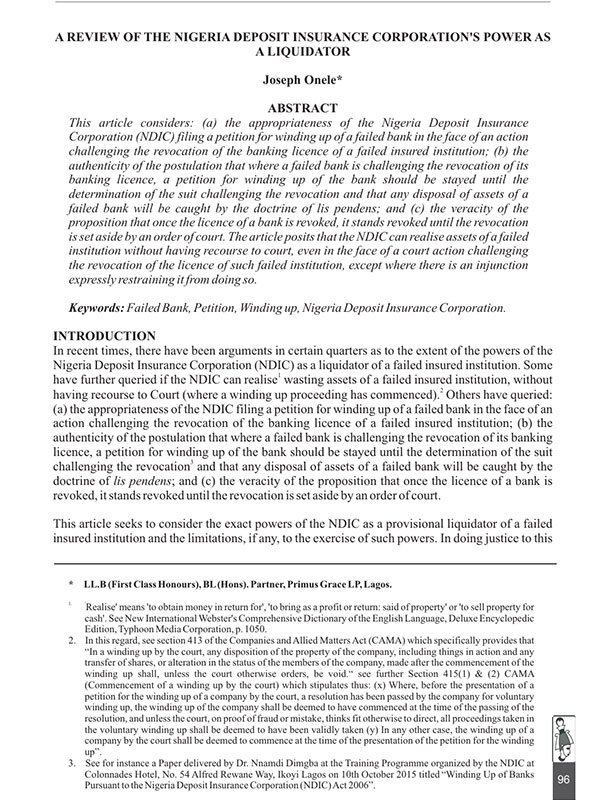
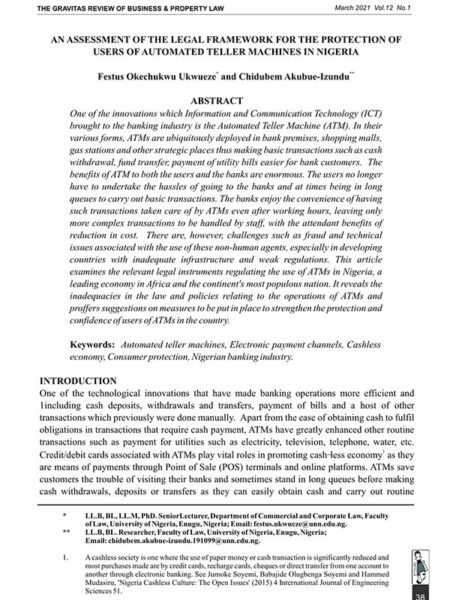
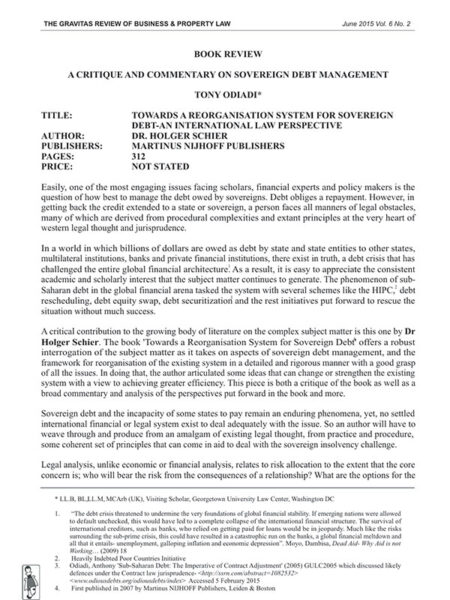
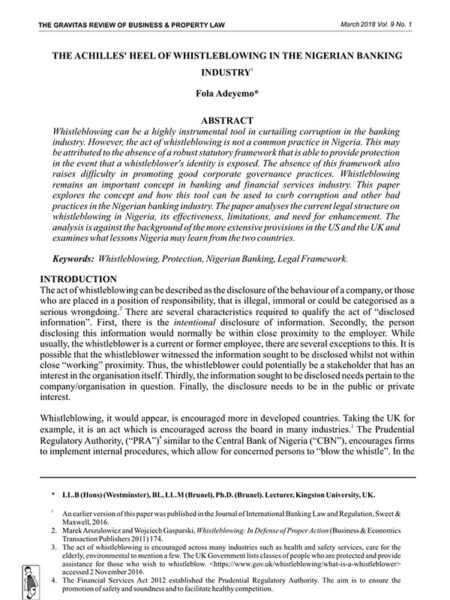
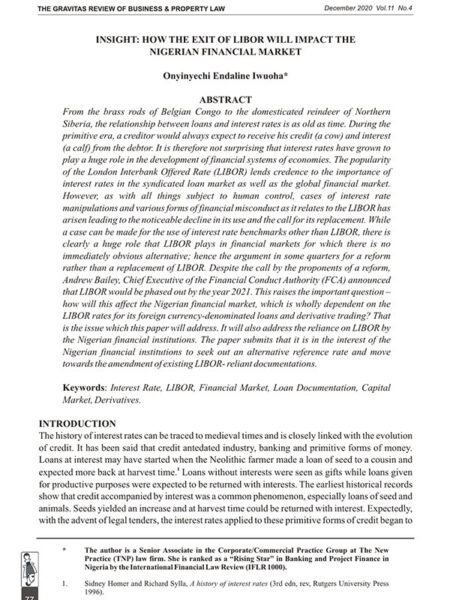


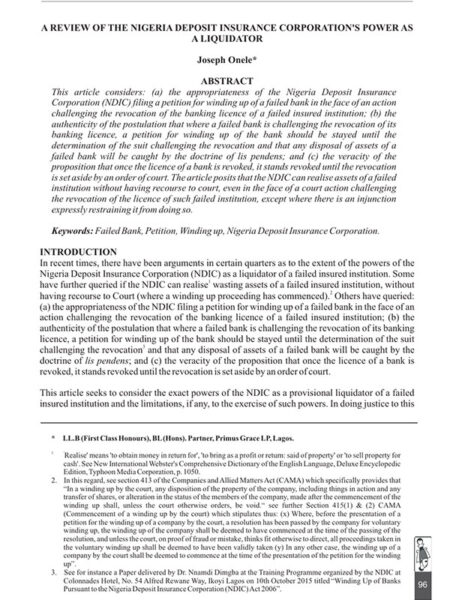
Reviews
There are no reviews yet.